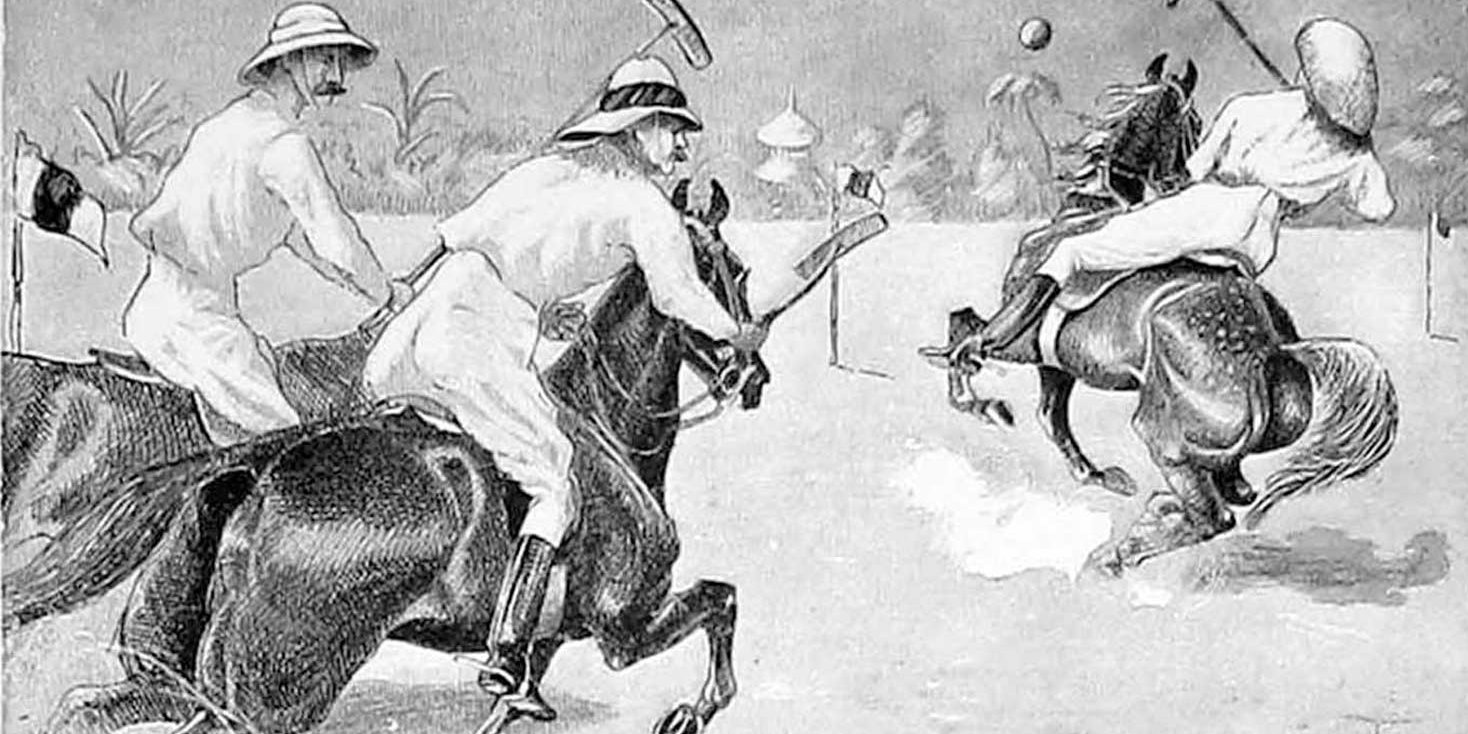Argentina may be known as the world’s polo mecca, and it’s certainly home to the world’s most talented players. But look back in polo history and you may be surprised to learn that the game of polo didn’t find its way to Argentina until relatively recently.
While it’s become a game, polo history actually has military origins.
Like some other horse sports (dressage for example), polo began as part of cavalry training. It first originated in Central Asia sometime before the first century AD, and was treated as a ‘mini battle’ by the tough Persian warriors who initially conceived of the game. Over time, polo was embraced more broadly as a national sport, played by many of Persia’s noblemen – and noblewomen – who enjoyed the fast-paced fun that the game involved.
From Persia, polo spread to Arabia, Tibet, Japan and China (where, in the 9th century, the death of a favourite relative during a match could result in the beheading of all surviving players… brutal!). Muslim conquerors also brought the game to India in the 14th century, where it’s been enormously popular ever since. In fact, India was where the first ’official’ game of polo was held: in Manipur.
Back then, the game was played by people of all classes, even commoners. There were seven players a side, and no goal posts – players scored by simply whacking the ball off the end of the field. The ponies used were indigenous Manipuri ponies, who topped out at 13 hh – but by all accounts, made up for their short stature with plenty of speed!
In 1958, the Calcutta Polo Club was formed.
The oldest club still in operation, it was founded by the first Europeans to embrace the game: the Brits who had come to India to establish tea plantations. After a captain in the 10th Hussars (stationed in India) fell in love with the game in 1866, the game spread like wildfire amongst the British cavalry units stationed in India – and from the 1830s, it began to catch on in England.
By the 1870s, polo matches at Richmond Park and Hurlingham were drawing thousands of spectators.
Thanks to the establishment of the Hurlingham Polo Association, a set of rules were drawn up for the game. At this stage, horses and riders weren’t trained to play the kind of non-stop, super-skilled polo seen today, so the matches tended to be slower and more methodical, with not much passing from player to player.
It wasn’t long before the Americans got in on the action, with the Westchester Polo Club formed in the 1880s, and the Meadowbrook Club kicking off not long after. Over time, the game was refined, with teams whittled down to four a side, and by the later 1880s, international tournaments were taking place with a standardised set of rules. The Americans are also credited with developing the long-hitting, fast-moving, wide-open style that revolutionised the sport.
When polo reached Argentina, things began to heat up even further.
Meanwhile, British settlers in Argentina began playing the game in their spare time (the pampas providing plenty of flat ground to play on). The Argentine gauchos (skilful athletes and horsemen) picked up the game and literally ran with it – and the fast, agile Argentine horses proved ideal for the sport.
Polo clubs rapidly opened in places like Venado Tuerto, Cañada de Gómez, Quilmes, Flores and Hurlingham. In 1892 The River plate Polo Association was founded and constituted the basis for the current Argentine Polo Association .
Since the 1920s, Argentina has reigned supreme on the polo field.
Along with football, polo is considered a national sport in Argentina, with matches drawing crowds of thousands. In 1928, Argentina wrestled the Copa de las Americas (Cup of the Americas) from the USA and has since established the ‘triple crown’ of polo tournaments: the Hurlingham Polo Open, Tortugas Polo Open and Palermo Polo Open.
Currently, most of the world’s top-ranked polo players are (unsurprisingly) Argentines. So is it any wonder that, for those wanting to master this thrilling game, Argentina is the ultimate place to go?
Keen to try polo in Argentina for yourself?
Head to El Venado for the best polo holidays experience you could hope for! (If you’re lucky, Fede might tell you some of his stories playing professional polo around the world!)











